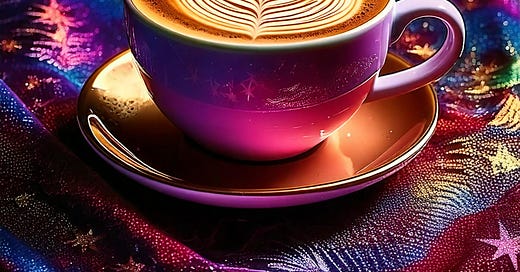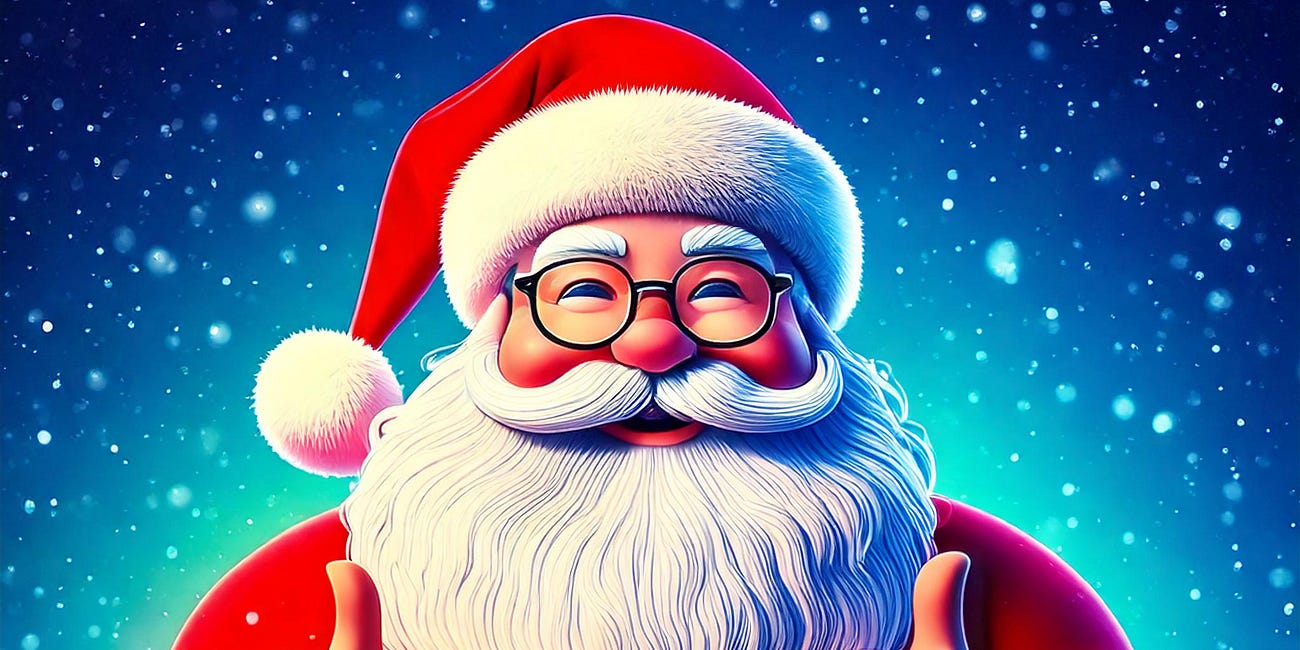The Evolution of Holiday Greetings: From "Merry Christmas" to "Happy Holidays"
From time to time I sometimes wonder about words and expressions. Merry Christmas vs Happy Holiday, which one do you prefer? Let's look into it and see what we find out. Perhaps a surprise awaits...
And as it so happens, nearing Christmas, I tend to hear Happy Holidays more and more, where Merry Christmas is an expression that seems to fade away. It seems like the Happy Holidays expression has completely taken over as the standard expresseion to use, especially in the movies. This is of course not a deep scientific study, but more an impression from a regular guy who loves movies, including Christmas movies.
With this question in mind, I decided to ask Google’s Gemini to find out more about this. The answer, actually both interesting and perhaps a bit surprising as well. So lets get into it, shall we.
A Deep Dive into a Festive Phrase
The holiday season is upon us once again, a time of joy, celebration, and, of course, greetings. But have you ever stopped to think about the words we use to wish each other well during this time of year? It's common to hear both "Merry Christmas" and "Happy Holidays," but where did these phrases come from, and why do we use them interchangeably? This blog post will delve into the history of these festive greetings, exploring their origins, evolution, and the cultural shifts that have shaped their usage.
The Origins of "Merry Christmas"
Let's begin with the more traditional of the two phrases: "Merry Christmas." The word "merry" has Old English origins, derived from the word "myrige," meaning "pleasing" or "agreeable." It has been associated with Christmas for centuries, with one of the earliest recorded uses appearing in a letter from 1534.
However, it was Charles Dickens's 1843 novella, "A Christmas Carol," that truly popularized the phrase. The iconic greeting "Merry Christmas" appears multiple times throughout the story, helping to solidify its place in popular culture. The book's immense popularity and enduring influence on Christmas traditions cemented "Merry Christmas" as the dominant holiday greeting for many years.
The Rise of "Happy Holidays"
Now, let's turn our attention to the more contemporary phrase: "Happy Holidays." While it may seem like a recent invention, "Happy Holidays" has a surprisingly long history. Its origins can be traced back to the mid-19th century in the United States.
The term "holiday" itself has even older roots, derived from the Old English word "hāligdæg," meaning "holy day." Initially, "Happy Holidays" was used to encompass the entire period of celebrations around Christmas and New Year's Day. It was a way to acknowledge the festive season without specifically referencing Christmas, making it inclusive of people from various religious backgrounds.
The Shift from "Merry" to "Happy"
The transition from "Merry Christmas" to "Happy Holidays" as a more common greeting is a complex issue with several contributing factors. While it's difficult to pinpoint an exact date for this shift, we can explore some of the key reasons behind it.
Inclusivity and Diversity: As societies became more diverse and multicultural, there was a growing awareness of the need to be inclusive of people who may not celebrate Christmas. "Happy Holidays" provided a more general greeting that encompassed various religious and cultural celebrations occurring around the same time of year, such as Hanukkah, Kwanzaa, and Diwali.
Commercialization of the Holiday Season: The increasing commercialization of the holiday season also played a role in the shift towards "Happy Holidays." Businesses and advertisers sought a greeting that would appeal to a broader customer base, regardless of their religious beliefs.
Political Correctness: In recent decades, the phrase "Happy Holidays" has become associated with political correctness. Some view it as an attempt to downplay the Christian origins of Christmas, while others see it as a respectful way to acknowledge diversity.
Christmas Movies and the Evolution of Greetings
You mentioned noticing a lack of "Merry Christmas" in some Christmas movies. This is an interesting observation that reflects the broader cultural shift in holiday greetings. While older Christmas films often feature characters exchanging "Merry Christmas" wishes, more recent movies tend to use "Happy Holidays" or a combination of both.
This trend can be seen as a reflection of the changing demographics and attitudes towards inclusivity in society. Filmmakers may choose to use "Happy Holidays" to appeal to a wider audience and avoid alienating viewers who do not celebrate Christmas.
The Merry vs. Happy Debate
The use of "Happy Holidays" instead of "Merry Christmas" has been a subject of debate for many years. Some people feel strongly about preserving the traditional "Merry Christmas" greeting, viewing it as an important part of their cultural and religious heritage. Others argue that "Happy Holidays" is a more inclusive and respectful way to acknowledge the diversity of beliefs and celebrations during the holiday season.
Ultimately, the choice of which greeting to use is a personal one. There is no right or wrong answer, and both phrases can be used with sincerity and goodwill.
The Importance of Intention
Regardless of whether you choose to say "Merry Christmas" or "Happy Holidays," the most important thing is the intention behind your words. A genuine expression of goodwill and warmth is what truly makes a holiday greeting meaningful.
As we celebrate this holiday season, let us remember the spirit of kindness, generosity, and understanding that it represents. Whether you're exchanging greetings with family, friends, or strangers, let your words be a reflection of the joy and goodwill that this time of year inspires.
In Conclusion
The evolution of holiday greetings from "Merry Christmas" to "Happy Holidays" is a fascinating reflection of cultural and societal changes over time. While "Merry Christmas" remains a beloved and traditional greeting for many, "Happy Holidays" has emerged as a more inclusive and widely used alternative.
As we move forward, it's important to remember that both phrases can be used with sincerity and respect. The true essence of a holiday greeting lies in the intention behind the words, the desire to spread joy and goodwill during this special time of year.
A Few More Interesting Facts
The use of "Happy Holidays" can be found in American literature as far back as the 1800s.
Advertising campaigns in the early to mid-1900s also utilized "Happy Holidays" to appeal to a broader audience.
The debate over "Merry Christmas" vs. "Happy Holidays" has been a recurring topic in American discourse, particularly in recent decades.
Many people use both greetings interchangeably, depending on the context and their relationship with the person they are addressing.
I hope this blog post has provided you with a comprehensive understanding of the history and evolution of holiday greetings. Whether you prefer "Merry Christmas," "Happy Holidays," or a combination of both, may your holiday season be filled with joy, peace, and happiness.






Interesting. I do say happy holidays because it feels more inclusive.
I love this! So great to learn about the origins of words and phrases.
I didn't know Happy Holidays went back so far.
Thank you Christian!